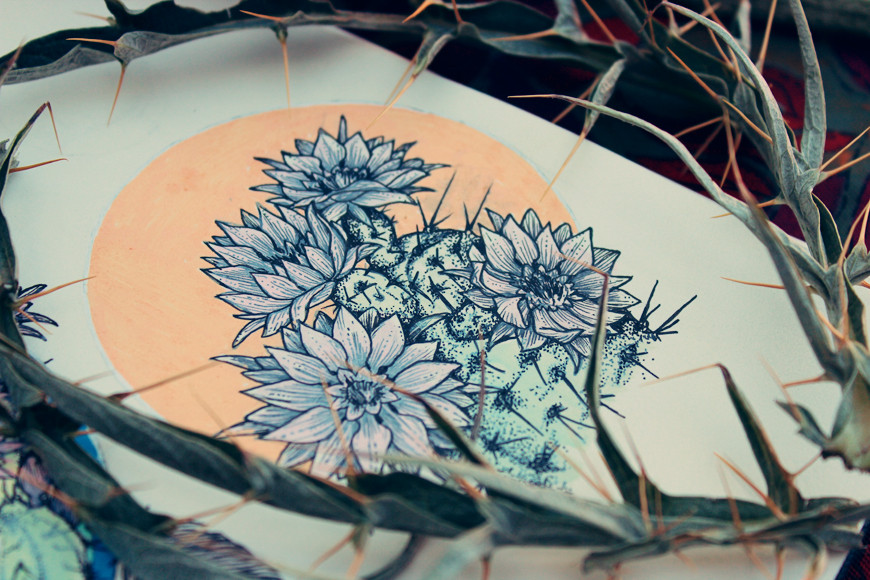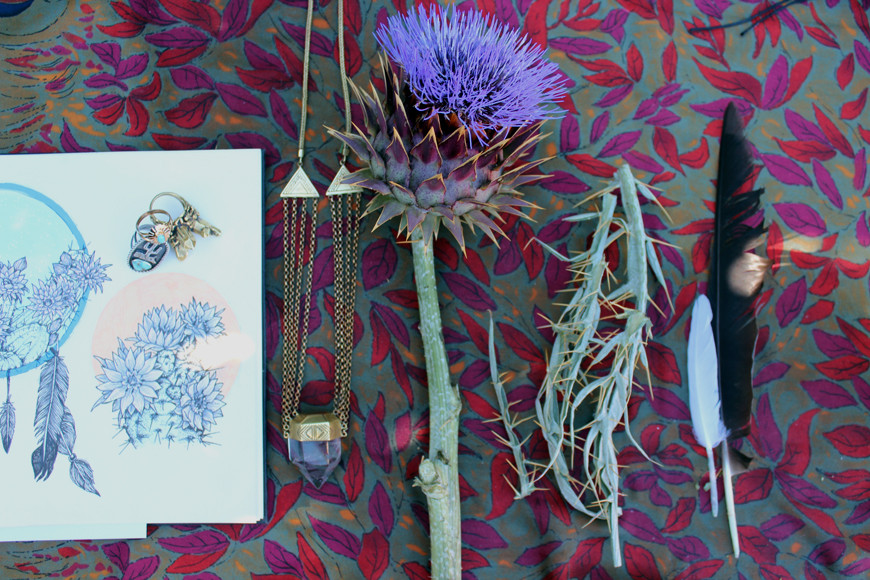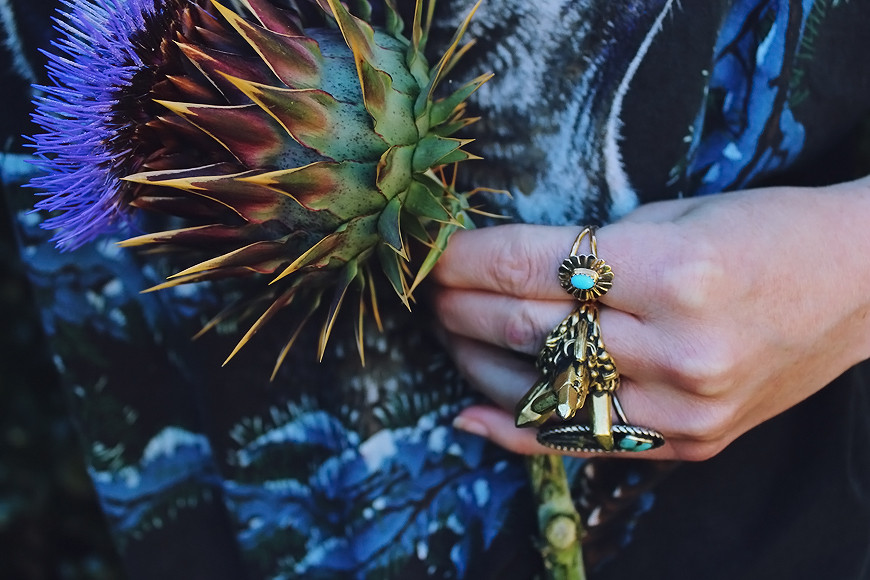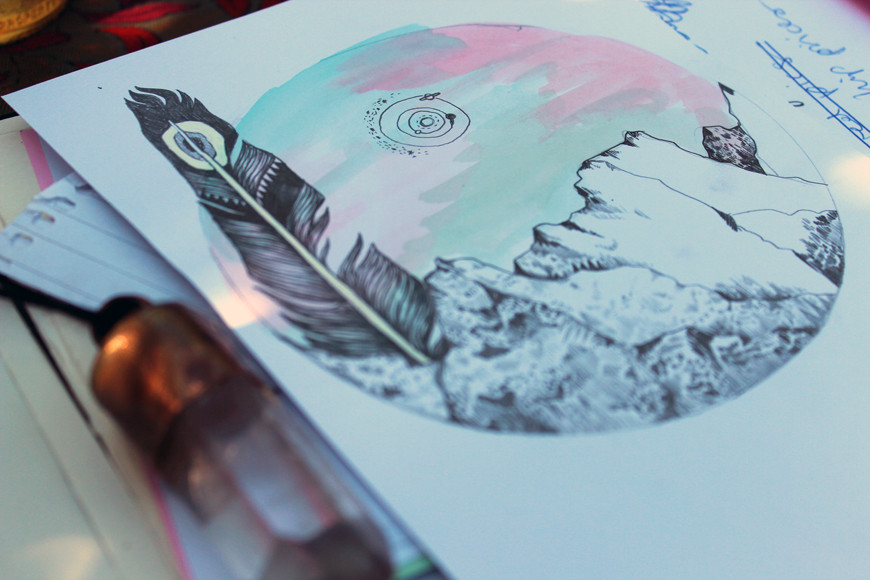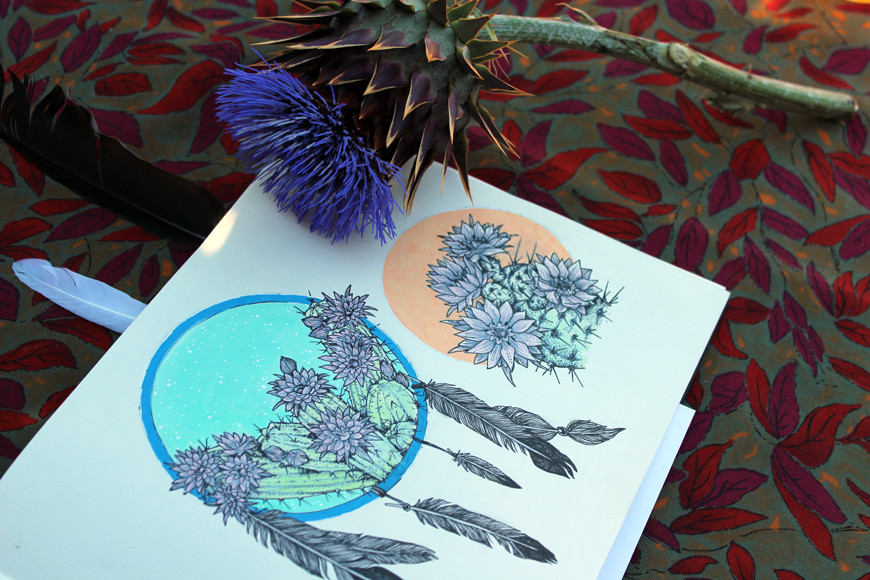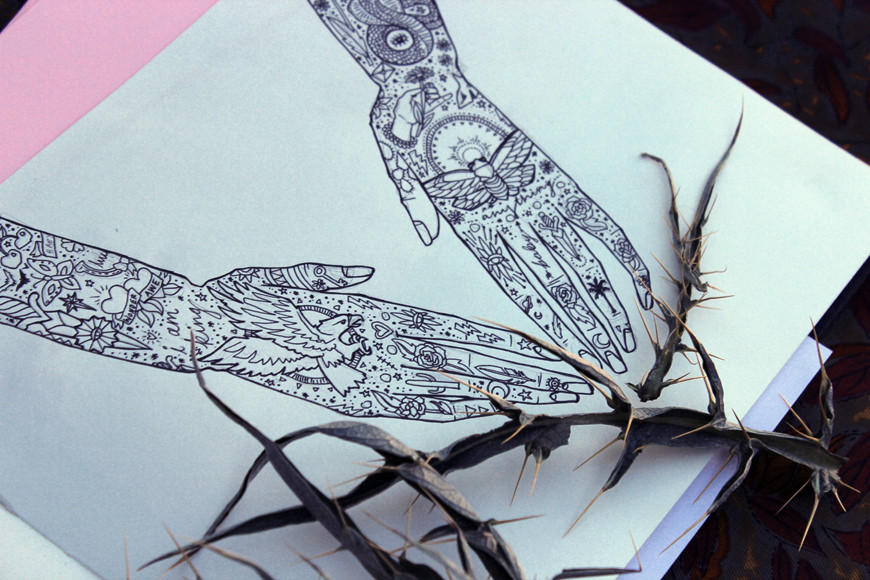Rings from Southset, Spell and the Gypsy Collective and Rejoice the Hands.
Necklace from Spell and the Gypsy Collective.
Every now and then I walk Humble along a creek at the bottom of our street, then up some stairs through a new estate, which is generically named 'Valley Lakes' and is attempting to pass off a water-filled quarry pit as a water feature.
Necklace from Spell and the Gypsy Collective.
Every now and then I walk Humble along a creek at the bottom of our street, then up some stairs through a new estate, which is generically named 'Valley Lakes' and is attempting to pass off a water-filled quarry pit as a water feature.
Just about every time I walk through Valley Lakes, another obese, boxy, concrete home has appeared, positively smothering the block its built on, and, at times -- so desperate for a bigger sprawl -- it shares an external wall with a neighbouring house. None of these houses have backyards, or if they do, they're the size of a hallway. The front gardens are pebbles and concrete, everything else is paved.
I feel like, looking at these marching rows of bleak status-houses, these people have consciously decided they don't ever want to come in contact with the natural world again. That they have decided it might be best to drive to work along sealed roads, sit in a sterile office all day, and then return home to a house full of manmade surfaces, and just stay there. Or maybe, feeling bold, they might go to the allocated strip of green down the road, to the park.
This all is, of course, not really a philosophy I can align myself with.
But last time I walked through Valley Lakes, I spotted something I really could subscribe to. Giant, prehistoric-looking clumps of thistles were sprouting all over the vacant lots. The slabs of land soon to host the sad piles of rendered brick and fake marble were raising one last act of defiance -- futile as it was.
I had a closer look at the thistles, because, like everything in the southern reaches of Australia, they seemed to be larger, wilder, more quintessentially Antipodean in their dinosaur proportions. And they were. Totally sculptural and violent, and larger than my fist. And realllllllly difficult to cut from the bush to take home as souvenirs.
But I did really want these thistles blooms in my home, because they are a hint at -- or a warning of -- the fact that everything has a method of defence, a way of protecting itself, a path to recourse. And for those who are willing to look hard enough, it's a reminder that the natural world, if we continue to force her hand, will one day show us the myriad ways she intends to defend herself, against us.
But unfortunately, I suspect no one in Valley Lakes is going to look too hard at those thistles. Or, if they do, they will see them simply as another nuisance, something to be uprooted and paved over before it rises up.

